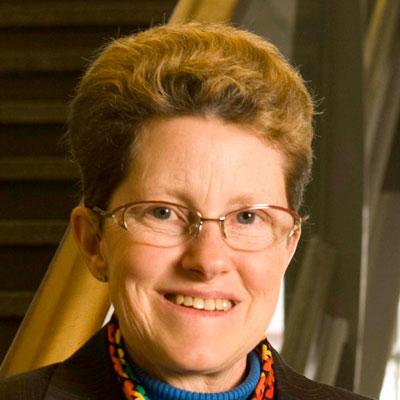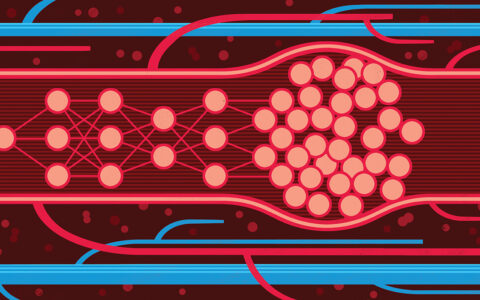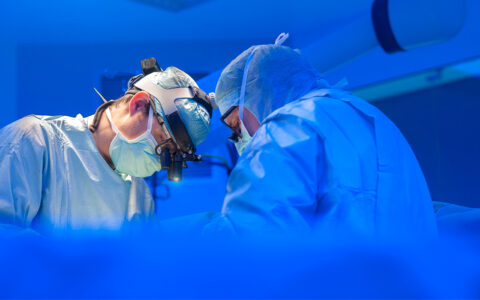When fetal cardiologists confirm congenital heart disease (CHD), they know that the news may devastate parents, but they also know that this diagnosis is essential to optimize prenatal and postnatal care.
Ellen Wright Clayton, M.D., a member of the Center for Biomedical Ethics and Society at Vanderbilt University Medical Center, Ann Kavanaugh-McHugh, M.D., a fetal cardiologist at Monroe Carell Jr. Children’s Hospital at Vanderbilt, and Kelly Harris, M.D., a pediatrics resident, took their clinical concerns for affected parents to the research table to identify their needs and devise ways to best support them.
“We know that parents who receive a prenatal diagnosis of CHD experience more short- and long-term stress, anxiety and depression and that this has emotional and physical consequences for them and for the baby, before and after birth,” Clayton said. “Parental stress can have a greater effect on these children’s quality of life than their illness severity.”
The “Unknown of it All”
The team’s recent study in JAMA Network Open revealed the sea of uncertainty surrounding fetal congenital heart disease is a major source of stress.
Harris interviewed 27 individuals (primarily mothers and fathers) from 17 families with a CHD diagnosis of level 3 to 10 lesions – those that can be surgically repaired to near-normal anatomy, to those with a high risk of affecting life expectancy. Questions probed their overall story, their anticipation of the future and factors influencing their feelings of empowerment.
“Participants seemed to value most highly an explicit plan for what happens today, throughout the remainder of pregnancy, immediately after delivery, and in the more distant future.”
Parents reported that the “unknown of it all” was the greatest source of fear – particularly waiting to see how the baby develops and waiting until delivery for any corrective surgery. Parents also cited concerns about losing the baby, the ability to bring them home from the hospital and care for them physically and financially, guilt, and an overriding concern that their child will have a lifetime of medical problems and poor quality of life.
“Participants seemed to value most highly an explicit plan for what happens today, throughout the remainder of pregnancy, immediately after delivery, and in the more distant future,” Kavanaugh-McHugh said.
Forging a Helpful Response
While charting the unknown is the biggest challenge, several concrete support strategies emerged:
- Assign each family a patient navigator to take even mundane uncertainties out of the process (appointment logistics and what to expect from the visit).
- Provide a ready means of connecting with parent groups that support and fundraise for children with CHD.
- Direct to resources for filtering in quality online information, available through groups like Children’s Hospital’s Junior League Family Resource Center.
- Invite palliative care staff to counsel and bring family needs to the attention of care teams.
- Communicate in words that don’t carry a charge. For instance, families appreciated it when the term “heart difference” was substituted for “heart defect.”
- Maintain a neutral atmosphere around the imaging process so parents do not to jump to conclusions.
“90 percent of children with CHD grow into adulthood, and there are now more adults with CHD than there are children.”
Improving Prospects, Sharing Hope
The researchers are now involved in multiple studies looking at the impact of prenatal diagnosis on the psychological and physical well-being of children and families with CHD.
“We are participating in a study on transforming mental health outcomes in single ventricle disease. Using MRI, we will look at whether specific prenatal counseling strategies alter maternal stress and impact fetal and postnatal brain growth,” Kavanaugh-McHugh said. “The window for prenatal diagnosis and counseling is expanding rapidly – the question is, are we providing the right kinds of support to these families?”
She adds that The Boyer Foundation, run by a parent of a child with CHD, is funding a full-time psychologist at Vanderbilt, dedicated to parents of fetuses and children with CHD.
Kavanaugh-McHugh regularly supplies her own form of therapy, derived from 30 years watching a tidal wave of improved prospects. “I tell patients that today, 90 percent of children with CHD grow into adulthood, and there are now more adults with CHD than there are children,” she said. “Eighty percent of children who had their first Fontan procedures 30 years ago, and are completing single ventricle palliation, are alive and without transplant.”
“Thankfully, your child is born now – the treatments that are going to be available for them in 20 years are just now forming in investigators’ minds.”







